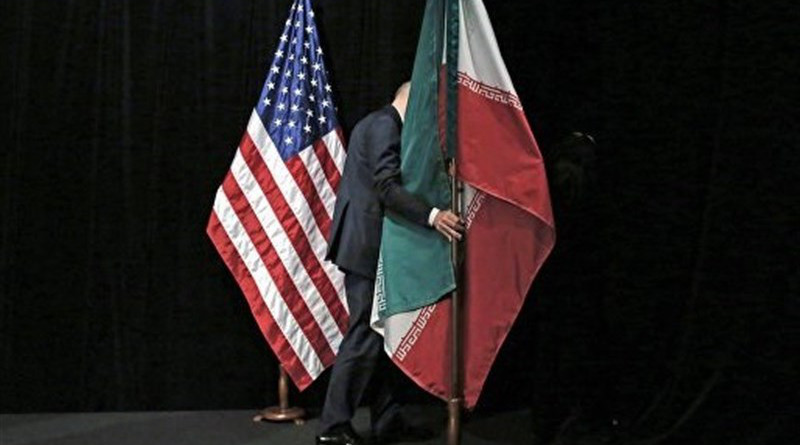The US Must Shield The Iran Deal From Israeli Interference – OpEd
By Brian Hudson
The ongoing negotiations between the United States and Iran, led by Abbas Araghchi and Steve Witkoff, mark a pivotal moment in global diplomacy. Facilitated by Oman and advanced through technical talks in Rome and Muscat, these discussions present a rare opportunity for a mutually beneficial bilateral agreement.
Unlike the fraught history of the 2015 Joint Comprehensive Plan of Action (JCPOA), the current talks—described by both the White House and Iran’s Foreign Ministry as “positive and constructive”—signal a pragmatic convergence of interests: Iran seeks sanctions relief to revive its struggling economy, while the United States aims to constrain Iran’s nuclear program, de-escalate regional tensions, and bolster its geopolitical position against rivals such as China and Russia.
Yet a serious threat looms over this fragile process: unilateral actions by Israel that could derail the diplomatic progress. The U.S. must assertively defend its national interests and prevent Israeli provocations from jeopardizing an agreement that could stabilize the Middle East and advance Washington’s strategic goals.
The talks, which began on April 12, 2025, in Oman and resumed in Rome on April 19, have progressed with unusual momentum. Statements from U.S. officials citing “tangible progress,” along with Iranian Foreign Minister Araghchi’s emphasis on “converging around common principles,” indicate a shared will to reach a sustainable resolution. For Iran, an agreement would mean the lifting of oil and banking sanctions, access to global markets, and relief from internal economic pressures. Diplomatic reports suggest that Iran is seeking concrete economic incentives in exchange for clearly defined and verifiable limits on its nuclear program.
In turn, the United States stands to benefit from an agreement that places Iran’s nuclear ambitions under strict International Atomic Energy Agency (IAEA) oversight, reduces the risk of military conflict, and stabilizes global energy markets. A senior U.S. State Department official stated on April 15, 2025, that a deal with Iran could ease geopolitical tensions while keeping diplomatic pathways open for future cooperation.
However, Israel has emerged as a potential spoiler of this progress. Its record of unilateral actions against Iran’s nuclear program—from cyberattacks such as the Stuxnet virus in 2010 to the assassination of nuclear scientists like Mohsen Fakhrizadeh in 2020—reflects a pattern of provocative behavior often undertaken without U.S. coordination. Israel insists that Iran’s nuclear program poses an existential threat and argues that the current negotiations fall short of providing sufficient safeguards against Iranian weaponization.
At this critical juncture, the United States’ national interest is clear: an agreement that limits Iran’s nuclear capabilities, enhances regional stability, and relieves economic pressure on American consumers through energy market stabilization is far more valuable than the risks posed by Israeli unilateralism. A successful deal could reduce global oil prices, lessen the need for costly U.S. military deployments in the Middle East, and free up resources to address other strategic challenges such as the rivalry with China. Furthermore, a lasting agreement could open the door to future cooperation with Iran on regional security and climate change, while simultaneously strengthening America’s leverage over global competitors.
To protect this opportunity, the United States must take decisive steps. First, Washington should deliver a clear message to Israel that unilateral actions against Iran will be met with diplomatic consequences, or even a reassessment of military support. This message can be conveyed through private diplomatic channels or public statements by senior officials. Second, the U.S. should coordinate closely with its European allies—especially France and Germany—to build international consensus in support of the deal and to increase pressure on Israel to refrain from disruptive behavior. Third, expediting technical negotiations to finalize the agreement before domestic or external political pressures can derail it is essential.
Ultimately, the current negotiations represent a historic chance to redefine U.S.-Iran relations and chart a course toward a more stable Middle East. But this opportunity is fragile and requires bold American leadership to shield it from Israeli interference. Washington must prioritize its own national interest: securing an agreement that enhances security, boosts the economy, and places diplomacy—not confrontation—at the center of international relations. History has shown that diplomatic openings are rare and often fleeting. Now is the time for the United States to act with courage and foresight and not allow the provocations of an ally to endanger the prospect of peace and stability. Diplomacy, not conflict, is the only sustainable path forward—and America must lead the way.

